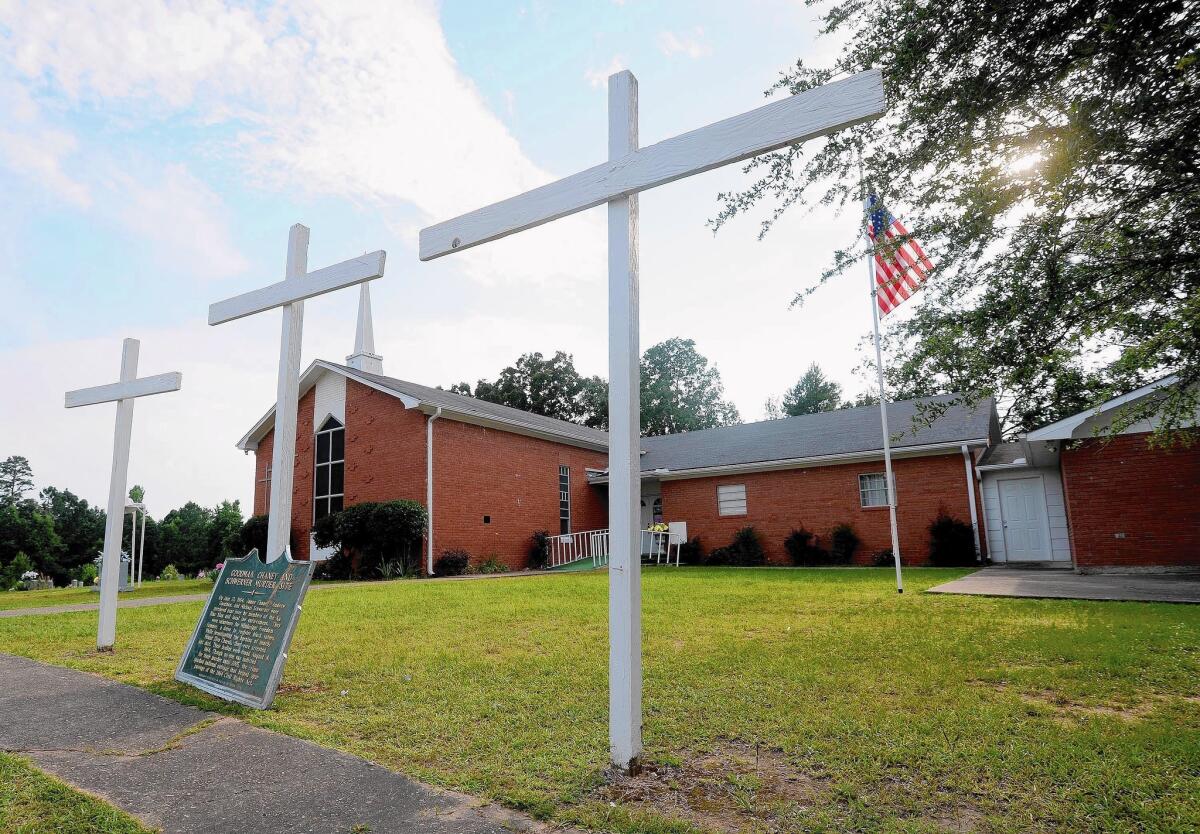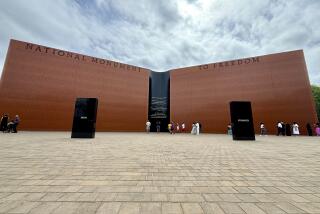Review: PBS’ ‘Freedom Summer’ a gripping reminder of courage in 1964

- Share via
There is no greater horror than that conjured by memory. While viewers shiver with shock and delight over the current crop of epic narratives — the bloody fights for freedom in “Game of Thrones,” Billy Bob Thornton’s malicious glee in “Fargo” — Stanley Nelson’s shattering and informative “Freedom Summer,” which premieres Tuesday on PBS, reminds us that fiction exists to help us process fact.
Fifty years ago, civil rights activist Bob Moses and members of the Student Nonviolent Coordinating Committee (SNCC) sent hundreds of young and mostly white volunteers into Mississippi, the heart of Jim Crow, to educate and empower the black community.
Before the first Freedom buses even rolled to the Deep South, Michael Schwerner, Andrew Goodman and James Chaney went missing and were later found buried in Neshoba County. Though most of the murderers would never be brought to justice, the men’s disappearance did bring national attention to Freedom Summer.
The murders are obviously a big part of “Freedom Summer.” Schwerner’s widow, Rita, herself a Freedom volunteer, gives several heartbreaking accounts of her life after the three disappeared. But this is a fuller, richer story of those months in 1964.
Wielding a treasure trove of historical clips as well as present-day interviews with those involved (including the late, great Pete Seeger), Nelson puts viewers firmly in a time and place that are not as distant as they seem.
Fear soon became a reality to everyone involved in Freedom Summer. Volunteer Linda Wetmore Hamilton recounts being accosted as she walked down a road by a carful of men. They surrounded her, saying “We ain’t killed a white girl yet. You’re going to be the first.”
They put a noose around her neck and got back in the car, forcing her to follow them faster and faster until, at last, they dropped the rope.
American patriotism is tied so firmly to the notion of democracy and exceptionalism that we often find it difficult to face those moments when some of our laws, customs and population are revealed to be monstrous. The clips of Southern politicians and everyday Mississippians celebrating their racism and the descriptions of how far into evil that racism took them are chilling to watch. (Particularly with the Voting Rights Act of 1965, which was the goal and triumph of Freedom Summer, once again under siege.)
Yet for every moment of shameful brutality, there are five more shown of courage and conviction. To see these young people, in their idealism and pre-summer of love fashions, pledging themselves to a cause that could cost them their lives; to watch the buses driving into the small towns and dusty yards where black families risked everything to take the volunteers in; to hear from the children, now grown, who learned of a different kind of life in the freedom schools is to be reminded that no fiction is more grounded in fact than the epic.
There is good and evil in this world. And there are moments when they do battle on the mountains and in the fields where men and women of courage choose to stand and fall together rather than look the other way. The summer of 1964 was one of those times.
------------
‘American Experience: Freedom Summer’
Where: KOCE
When: 9 p.m. Tuesday
Rating: TV-PG-LV (may be unsuitable for young children with advisories for coarse language and violence)
More to Read
The complete guide to home viewing
Get Screen Gab for everything about the TV shows and streaming movies everyone’s talking about.
You may occasionally receive promotional content from the Los Angeles Times.







